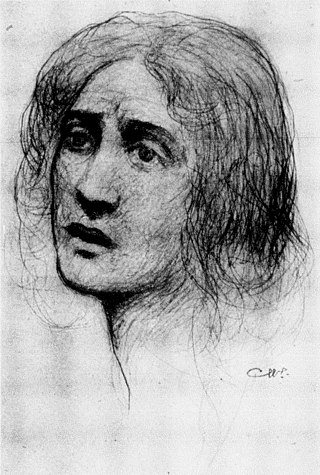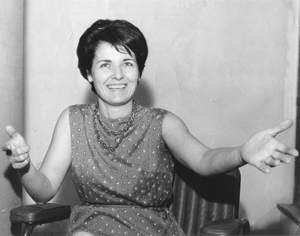Related Research Articles

Ali Ahmad Said Esber, also known by the pen name Adonis or Adunis, is a Syrian poet, essayist and translator. He led a modernist revolution in the second half of the 20th century, "exerting a seismic influence" on Arabic poetry comparable to T.S. Eliot's in the anglophone world.
Arabic literature is the writing, both as prose and poetry, produced by writers in the Arabic language. The Arabic word used for literature is Adab, which is derived from a meaning of etiquette, and which implies politeness, culture and enrichment.

Tumāḍir bint ʿAmr ibn al-Ḥārith ibn al-Sharīd al-Sulamīyah, usually simply referred to as al-Khansāʾ was a 7th-century tribeswoman, living in the Arabian Peninsula. She was one of the most influential poets of the pre-Islamic and early Islamic periods.
Arabic poetry is one of the earliest forms of Arabic literature. Present knowledge of written poetry in Arabic dates from the 5th century, but oral poetry is much older.

Yusuf al-Khal was a Lebanese-Syrian poet, journalist, and publisher. He is considered the greatest exponent of avantgardist prose poetry as well one of the pioneers of Arabic surrealist poetry.

Elias Khoury is a Lebanese novelist and public intellectual. His novels and literary criticism have been translated into several languages. In 2000, he won the Prize of Palestine for his book Gate of the Sun, and he won the Al Owais Award for fiction writing in 2007. Khoury has also written three plays and two screenplays.

Hanan al-Shaykh is a Lebanese author of contemporary literature.

Emily Daoud Nasrallah was a Lebanese writer and women's rights activist.
Nazik Saba Yared is a Lebanese novelist and academic, a former professor, and a writer. She is the daughter of Alexander and Hala (Maalouf) Saba. She was married to the late Ibrahim Yared and has three children and four grandchildren.
Layla Balabakki was a Lebanese novelist, journalist, activist and feminist. Among her most notable works is Ana Ahya (1958) which tells the story of a woman's protest against parental authority and community leaders. Balabakki's literary work also inspired political uproar because of her public criticisms of Islam and sexually explicit stories. Balabakki was brought to trial, while her work was censored. Her desire to push back against societal values and explore alternative female identities made Balabakki a large influence on contemporary Arab feminism.
The instance that marked the shift in the whole of Arabic literature towards modern Arabic literature can be attributed to the Arab World-West contact during the 19th and early 20th century. This contact resulted in the gradual replacement of Classical Arabic forms with Western ones. Genres like plays, novels, and short stories were coming to the fore. Although the exact date in which this reformation in literary production occurred is unknown, the rise of modern Arabic literature was "inseparable" from the Nahda, also referred to as the Arab Renaissance.
Mohammed Wajih Sobhi Fanous, was a Lebanese literary critic, academic, and researcher. He wrote about twenty books, ranging from literary criticism, cultural heritage, Islamic civilization, and contemporary themes. Some of his works have been translated into French. He held a number of cultural, intellectual, and academic positions, and was honored on several occasions.
Ibrahim Mohammed Mahmoud al-Kufahi is a Jordanian poet, critic and professor. He was born in Irbid, Jordan on March 1, 1967, and it is where he studied. He obtained a degree in Arabic language and literature from Yarmouk University and a master's degree in literature and criticism from the same university. He worked as an Arabic teacher publishing his literary works in Jordanian newspapers and magazines such as Al Ra'i, Yarmouk and Voice of the Generation. He has a collection of poetry entitled The Qur’an and Venice (1991) and several other works.
Thurayyā 'Abd al-Fattāḥ Malḥas was a Palestinian poet and academic. She is considered a pioneer of free verse poetry among Palestinian women writers.
Al Adab was an Arabic avant-garde existentialist literary print magazine published in Beirut, Lebanon, in the period 1953–2012. It was restarted in 2015 as an online-only publication. Encyclopædia Britannica describes it as one of the leading publications founded in the Arab countries in the latter half of the 20th century. Although the magazine was headquartered in Beirut, it was distributed all over the Arabic-speaking regions.
Muhammad Saleh Al-Jaberi was a Tunisian researcher and scholar. He was born in the Tunisian city of Tozeur in February 1940, and he died in June 2009 in the Tunisian city of Ariana. Al-Jaberi specialized in recording the historical and literary movement in the Maghreb, specifically in Algeria, Libya, and Tunisia. This could be seen in his studies and researches on Tunisian literature and culture. As a poet, Al-Jaberi also excelled in his narratives in short stories and novels, and he leaned towards realistic narratives that combine direct recordings and history in a clear, straightforward manner.

Ahmad Qandil was a Saudi Arabian poet and writer, emerged as a folk-popular poet who centralized Middle class culture in his Hejazi Arabic poetry and prose. Born in Jeddah, he studied and then taught at Al-Falah School, worked around one year as editor-in-chief of Sawt Al-Hijaz newspaper in Mecca, hold some positions in Ministry of Finance such as general manager of Hajj. After retirement from government occupations, he devoted himself to literary writing and media production in an institution he established, through which he cooperated with radio and television of Jeddah. He died at the age of 68 while recording the last episode of his program on Jeddah TV "Ramadan Lanterns", and left many collections of poetry some of which were published after his death.

Isa Hasan al-Yasiri is an Iraqi-Canadian poet. He was born in a village in southern Iraq, located near the town of Al-Kumait in the Maysan Governorate. He completed his primary education between the village school and Al-Kumait school, and intermediate and higher education in the Teachers' House in Al-Amarah. After graduating, he worked in education, radio and literary journalism. Among his generation, Al-Yasiri is distinguished in his poetry and personal life for exclusivity and independence from the Iraqi Ba'athist authority. He left his country in the fall of 1998, and lived in Jordan for two and a half years before arriving in Canada at the beginning of 2001 and moving to Montreal. He has published approximately eight poetry collections, beginning in 1973.
Ali Ja'far al-Allaq is an Iraqi poet, literary critic and academic. He graduated from the universities of Al-Mustansiriya in 1973, and Exeter in 1984. He held many administrative and academic positions, and wrote several collections of poetry and important critical studies, which had an important role in the modern Iraqi poetic movement.
Khalida Said is a Syrian-origin author and literary critic. She has taught and published extensively on Arabic literature and culture since 1957.
References
- 1 2 3 Ashour, Radwa; Ghazoul, Ferial; Reda-Mekdash, Hasna (2008). Arab Women Writers: A Critical Reference Guide, 1873-1999. American University in Cairo Press. p. 482. ISBN 978-9774162671.